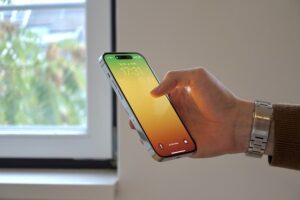Apple has taken a significant step towards resolving the iPhone battery slowdown controversy as the company prepares to compensate affected users. The move comes after a class-action lawsuit raised concerns about Apple’s intentional slowing down of older iPhones. Learn more about the details of the lawsuit, the compensation process, and what this means for iPhone users.
In a groundbreaking development, Apple has announced its decision to begin paying out claims to users affected by the infamous iPhone battery slowdown controversy. This move follows a long-standing class-action lawsuit that accused Apple of deliberately slowing down older iPhone models without proper user consent. As the tech giant takes strides towards resolving this issue, affected users can finally anticipate compensation for their grievances.
Understanding the Lawsuit
The controversy dates back to 2017 when reports began circulating that older iPhones were experiencing performance throttling, leading to slower device speeds. Users and tech enthusiasts discovered that these slowdowns were connected to aging batteries, sparking speculation that Apple was intentionally pushing users to upgrade to newer iPhone models.
In response to the uproar, Apple initially cited battery health management as the reason behind these performance adjustments. The company claimed that the measures were intended to prevent unexpected shutdowns on devices with worn-out batteries. However, users and critics remained skeptical, and legal action was initiated to hold Apple accountable for what many saw as a lack of transparency and a violation of user trust.
The Road to Compensation
After years of legal battles, Apple has now taken a significant step towards rectifying the situation. The company has announced that it will be making payouts to users who were impacted by the iPhone battery slowdown issue. The settlement amount is expected to vary depending on factors such as the type of iPhone model and the extent of the slowdown experienced by the user.
To be eligible for compensation, users will likely need to provide proof of ownership of an affected iPhone model and demonstrate that they experienced performance issues due to the battery slowdown. Details about the claims process and specific eligibility criteria are expected to be released soon.
Implications for iPhone Users
This move by Apple marks a crucial turning point in the ongoing controversy. It demonstrates the company’s acknowledgment of its mistakes and its commitment to addressing the concerns of its user base. By compensating affected users, Apple aims to restore trust and repair its tarnished reputation.
For iPhone users, this decision carries significant implications. It not only means potential financial compensation but also emphasizes the importance of user consent and transparency in tech companies’ practices. As the tech industry continues to evolve, this case serves as a reminder that user trust should be at the forefront of product decisions and business practices.
Looking Ahead
Apple’s decision to compensate users in the iPhone battery slowdown lawsuit is a step in the right direction. It signifies the power of collective action and highlights the importance of consumer advocacy in holding tech giants accountable. As the details of the claims process emerge, affected users will have the opportunity to seek reparation for their experiences.
In the end, this case emphasizes the need for ethical and transparent practices within the tech industry. As users, it’s essential to remain informed about our rights and hold companies accountable when those rights are compromised. Apple’s response to the battery slowdown controversy underscores the fact that even the most influential companies can be held responsible for their actions.












